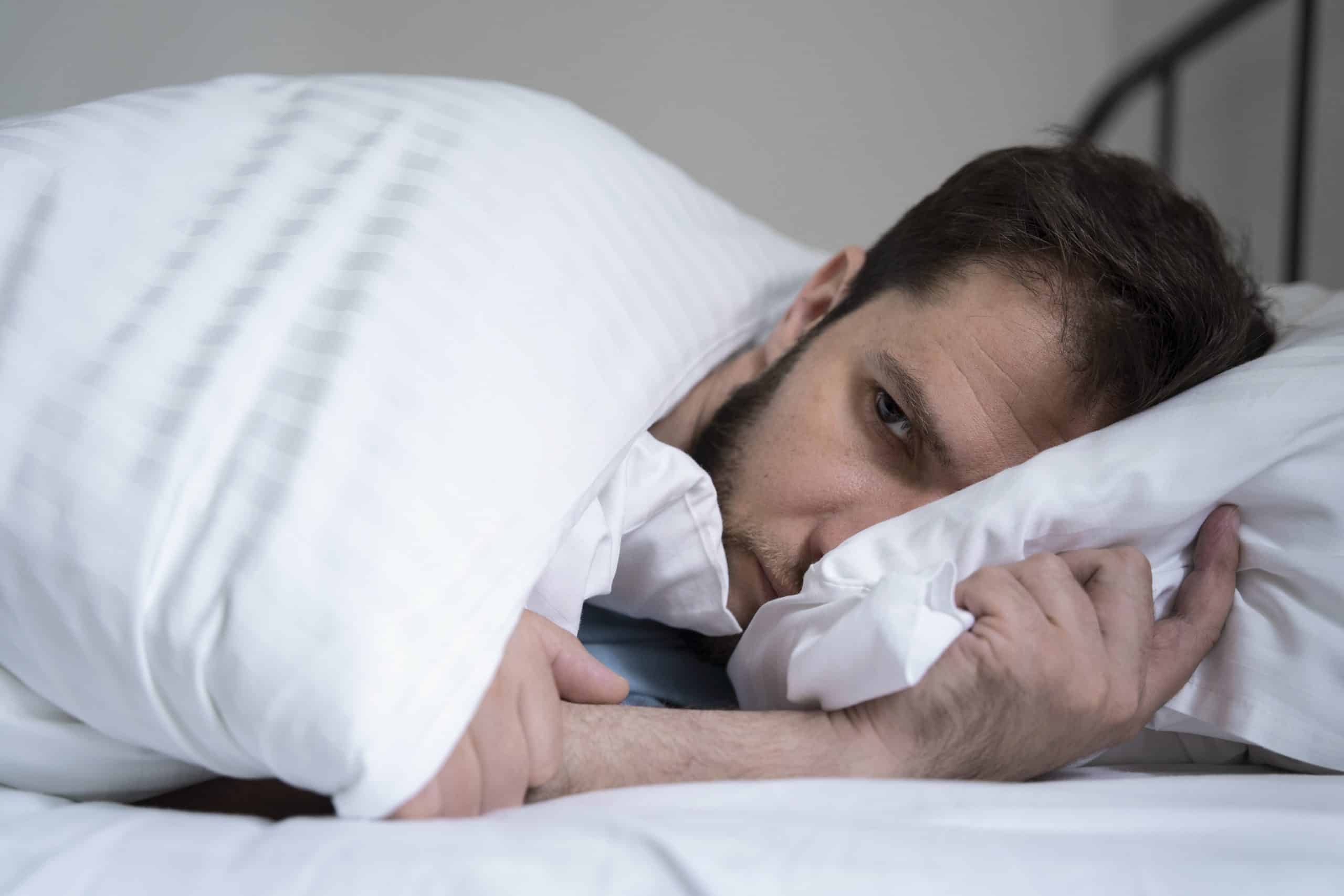There are many factors you must consider to maintain long term addiction recovery. Associating with healthy friends, developing a purpose in life and exercising are all crucial elements of recovery. But have you considered how important sleep is?
Getting a sufficient amount of sleep can be the difference between having a healthy recovery and falling victim to relapse. To help you understand why this is, we wrote this blog on the connection between sleep and addiction recovery. Our aim is to enlighten you on why you should prioritize sleep if you are recovering from addiction.
Why do you Need Sleep for Recovery?
A disrupted sleep schedule or lack of adequate sleep can have severe consequences on mental health. Sleep deprivation is often linked to the development and exacerbation of mental health disorders such as anxiety, depression, and bipolar disorder. Additionally, it can worsen symptoms in people already struggling with these conditions. Research has also shown a strong connection between disrupted sleep patterns and the risk of developing substance dependency and addiction.
In mental health treatment, prioritizing sleep is of utmost importance. Sleep hygiene, which involves adopting healthy habits and practices to promote quality sleep, is often emphasized. This includes establishing a consistent sleep schedule, creating a relaxing bedtime routine, and creating a comfortable sleep environment. Incorporating good sleep hygiene practices into mental health treatment plans can significantly improve mood stability, cognitive functioning, and overall mental wellness.
By addressing sleep disturbances and promoting healthy sleep habits, you can experience improved mental health outcomes. Sleep should be seen as a fundamental component of mental health treatment, as it can positively impact overall well-being. Good quality sleep and addiction recovery go hand in hand.
Sleep Disturbances and Their Effects on Substance Dependency
One of the key factors affected by sleep disturbances is the circadian rhythm. This internal biological clock regulates our sleep-wake cycle, and disruptions to this rhythm can lead to difficulty falling asleep, staying asleep, or experiencing restful sleep. Sleep disturbances can make people more vulnerable to substance abuse, as they may turn to drugs or alcohol to self-medicate and cope with their sleep problems.
In turn, substance abuse can further disrupt sleep patterns, creating a vicious cycle that exacerbates both issues. Poor sleep hygiene, such as irregular sleep schedules, excessive daytime napping, or using electronic devices before bed, can contribute to sleep disturbances. These factors can be particularly challenging for individuals in recovery, as they may struggle with establishing healthy sleep routines.
Lack of sleep can also contribute to mood disturbances such as depression and anxiety, making it more difficult for individuals in mental health treatment to maintain stable mental wellness. Recognizing the importance of sleep in mental health treatment and substance dependency is crucial. Sleep plays a vital role in cognitive function, emotional regulation, and overall well-being. Improving sleep hygiene and addressing sleep disturbances can positively impact recovery outcomes and support individuals in maintaining sobriety.
Incorporating sleep-focused interventions, such as cognitive-behavioural therapy for insomnia or relaxation techniques into mental health treatment can be highly beneficial. By prioritizing sleep, people in recovery can improve their mental health, strengthen their sobriety, and enhance their overall quality of life.
Strategies for Improving Sleep and Enhancing Mental Health and Recovery
There are numerous strategies for improving sleep and therefore improving mental health and sobriety outcomes. These strategies include:
Sleep Hygiene Education
Often used as a front-line strategy to improve sleep, sleep hygiene education promotes the creation of optimal sleep environments, which increase the likelihood of good quality sleep. This includes creating an environment that is conducive to sleep, such as ensuring a comfortable and quiet bedroom, keeping the room at a cool temperature, and avoiding electronic devices before bedtime.
Following a regular wake and sleep schedule is also pivotal, as it promotes regulation of the hormones that promote wakefulness or drowsiness. Additionally, engaging in relaxation techniques before sleep, such as mindfulness or deep breathing exercises, can help reduce stress and anxiety, promoting better sleep. Sleep hygiene education highlights the connection between sleep and addiction recovery, instilling people with the idea that sleep is so vital for recovery.
Cognitive Behavioral Therapy for Insomnia (CBT-I)
However, sometimes sleep hygiene education is not enough to address sleep disturbance. Key factors that exacerbate sleep disturbance include thoughts and behaviours towards sleep, which are addressed more readily in cognitive behavioral therapy for insomnia. From the perspective of CBT-I, sleep disturbance becomes chronic because of the beliefs and behaviours that surround it, leading to further issues in mental health outcomes and sobriety.
For example, people may begin to worry excessively about their insomnia and enter into an arousal state prior to sleep. This arousal state is opposite to the relaxed state the body requires to sleep, and promotes threat-readiness and scanning. Instead of being ready to sleep, this anxiety leads to a hyperfocus on bodily sensations (e.g., pain) or external stimuli (e.g., traffic) that are attributed to preventing sleep.
Furthermore, behaviours can exacerbate poor sleep. People experiencing insomnia may engage in behaviours they believe to be helpful in addressing, or living with, their lack of sleep. This may include heavily exercising in the day in order to feel tired or taking stimulants to remain awake in the day. These behaviours further dysregulate the normal hormonal cycle which is required for healthy sleep and therefore make falling asleep more difficult. As such, thoughts and behaviours around insomnia or chronic sleep issues can worsen the condition and may require CBT-I to address them fully.
Medication
Finally, it can be useful to use pharmacology to improve sleep for recovery. This can be especially helpful for those whose lack of sleep is affecting their cognitive or emotional functioning in the day and worsening the presentation of conditions such as depression. It can also be of use to those in the acute withdrawal phase of substance recovery, as the normal physiology which supports their circadian rhythm may be disturbed by drug withdrawal.
Common pharmacological interventions include using melatonin, antihistamines or other sleep aids to increase the ease of initiating sleep. It must be noted that pharmacological interventions to support sleep should be additional to, rather than replace, traditional sleep hygiene or CBT-I interventions, as it is possible to become reliant on these interventions.
Such interventions recognize the importance of sleep in mental health and substance dependency treatment. Lack of sleep or poor quality sleep can exacerbate symptoms of mental health disorders and increase the risk of substance abuse. Ensuring proper sleep can support mental health recovery by reducing symptoms of depression and anxiety, improving concentration and memory, and enhancing overall mood.
Sleep is Crucial for Addiction Recovery
The significance of sleep cannot be overlooked when it comes to substance dependency: Adequate and quality sleep plays a critical role in the restoration and maintenance of mental health, while also acting as a protective factor against substance abuse and relapse. Sleep deprivation or disturbances can significantly impair cognitive functions, emotional regulation, and overall well-being, exacerbating mental health disorders and increasing the risk of substance dependence.
Therefore, integrating sleep-focused interventions into treatment plans, such as sleep hygiene education, cognitive behavioural therapy for insomnia (CBT-I), or pharmacological interventions, can lead to improved treatment outcomes for individuals struggling with mental health issues and substance dependency.
Recognizing the interconnections between sleep and mental health and developing comprehensive approaches that prioritize sleep can ultimately contribute to more effective and holistic therapies, ultimately enhancing the overall well-being and recovery of individuals in need.
The Beekeeper Addiction Treatment Center in Chiang Mai, Thailand
At The Beekeeper, we recognize the importance of sleep for addiction recovery. When a client comes to us with addiction problems we ask a range of questions, with the aim of understanding their unique needs. If this person tells us they are having sleep problems, we will work together to come up with ways we can optimize their sleep.
This may involve sleep hygiene education or CBT-I. Sometimes sleep problems in early recovery are caused by withdrawal, and if this is the case, we can support the client with pharmacological interventions designed to improve sleep quality.
For more information on our program, or to speak with us about your addiction treatment needs, please contact us on +66 90 893 5296.





